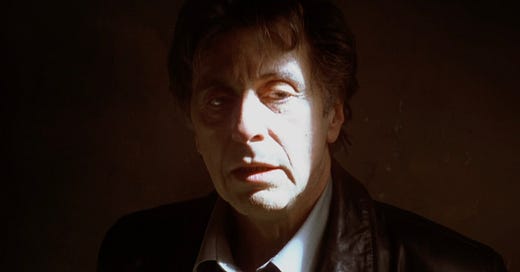Welcome to my recurring Five-Star Three-Star Cinema Club column, in which I am out in search of that rare delight: the five-star three-star movie. Inspired by my post about 1996’s Twister, and expanded upon in a follow-up post, the idea here is to build out a canon of movies that are not exactly great, and certainly not transcendent, but are great at being the exact kind of perfect mediocrity you sometimes crave on a Sunday afternoon.
These posts are for paid subscribers only.
If you know anything about my movie tastes, you know about my fondness for Christopher Nolan. “Fondness” may be putting it lightly, but I recognize being a Nolan fan isn’t “cool,” so allow me some understatement, just to save face. (But have you rewatched Tenet lately?) Amid Nolan’s universally excellent body of work, there is one film that stands out, that maybe doesn’t quite fit. Insomnia was Nolan’s first studio film. Having premiered Memento at festivals, doors started opening, and Steven Soderbergh got him set up at Warner Bros. to remake the 1997 Norwegian thriller, which had starred Stellan Skarsgård. The indie-to-studio pipeline was nothing new, but this was a time when the big step up meant something mid-budget for adults, not a $200 million blockbuster. In Nolan’s case, those would come later, after he’d proven his chops with Insomnia.
There’s no time-bending in Insomnia—some flashbacks make their way in, though—and the scale is smaller than people are used to with Nolan at this point. The film is a remake, and while helped actively develop the screenplay and did his own pass, he left sole writing credit to Hillary Seitz. It’s a straight ahead crime picture. Unusual for Nolan, and thus often forgotten. It’s possible the other reason it’s often left out of converstaions about Nolan is that it is, at heart, a three-star picture. You see where I’m going with this. In fact, the beauty of the film is its self-assuredness in its three-star nature. Insomnia is a rare case of an American remake lightening up a dark European film, making it more Hollywood, but actually improving upon it as a result.




